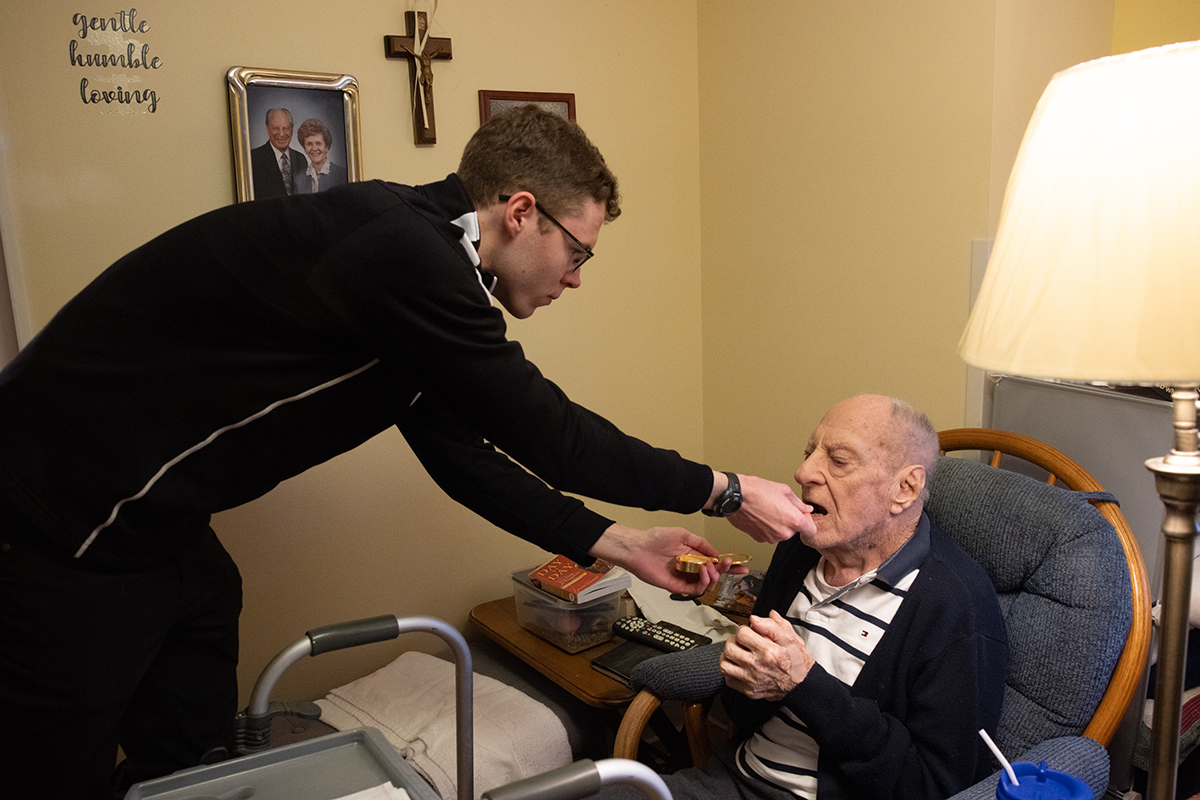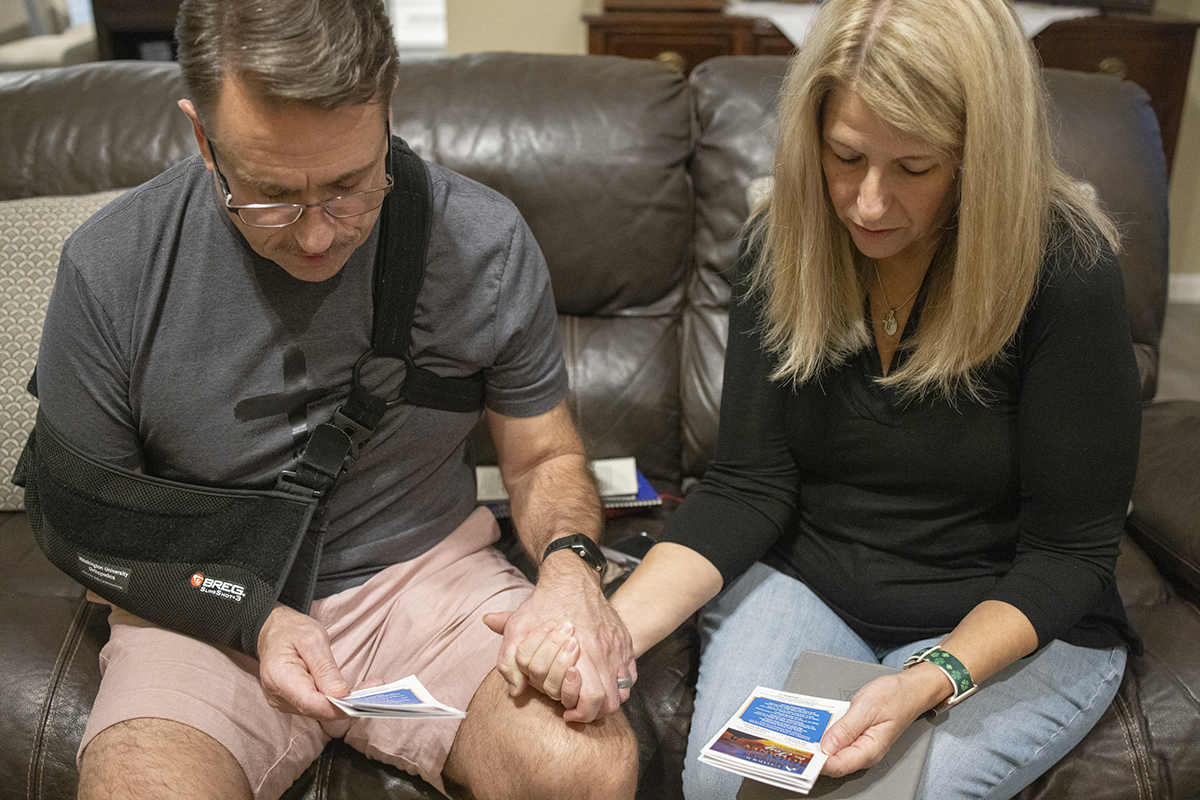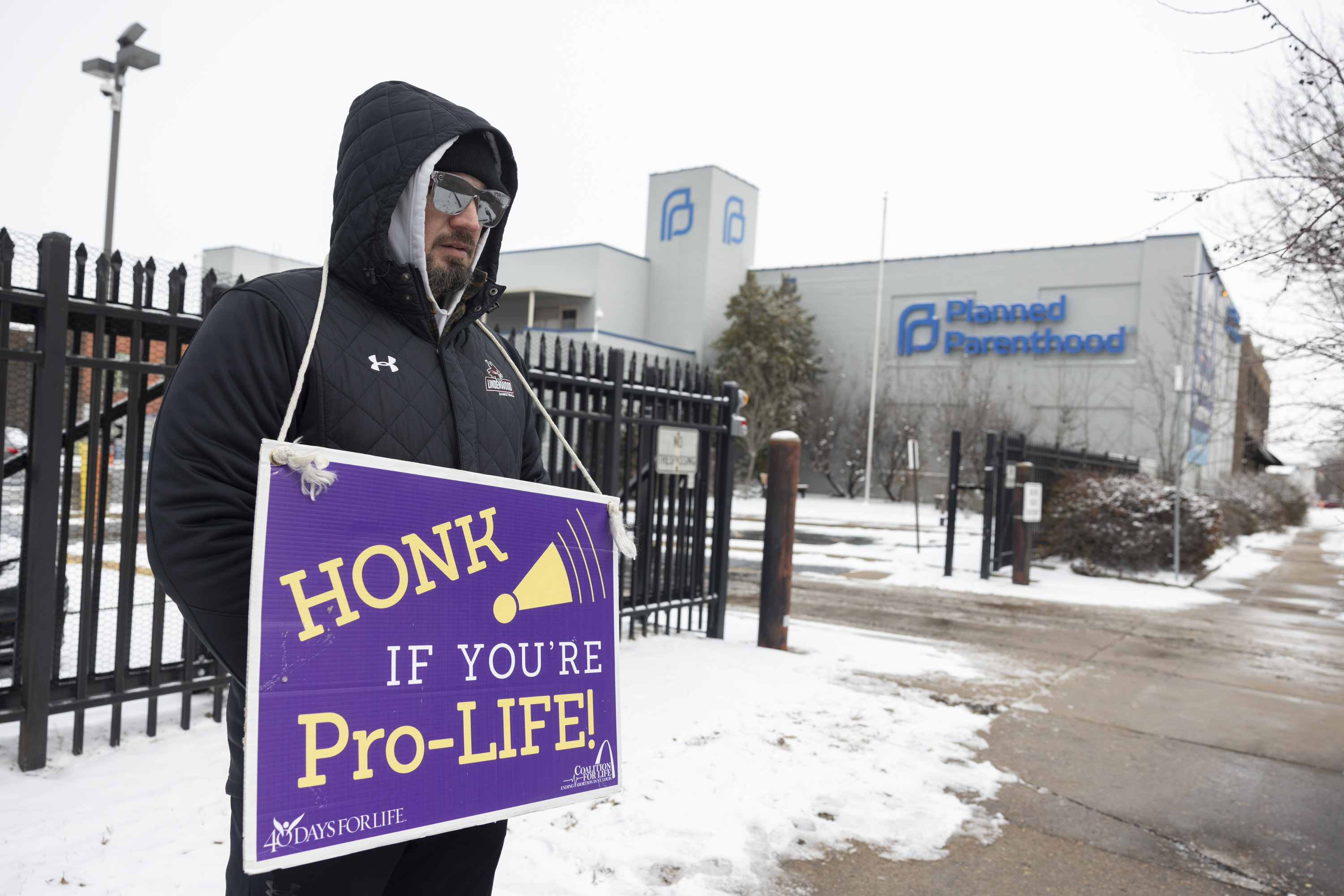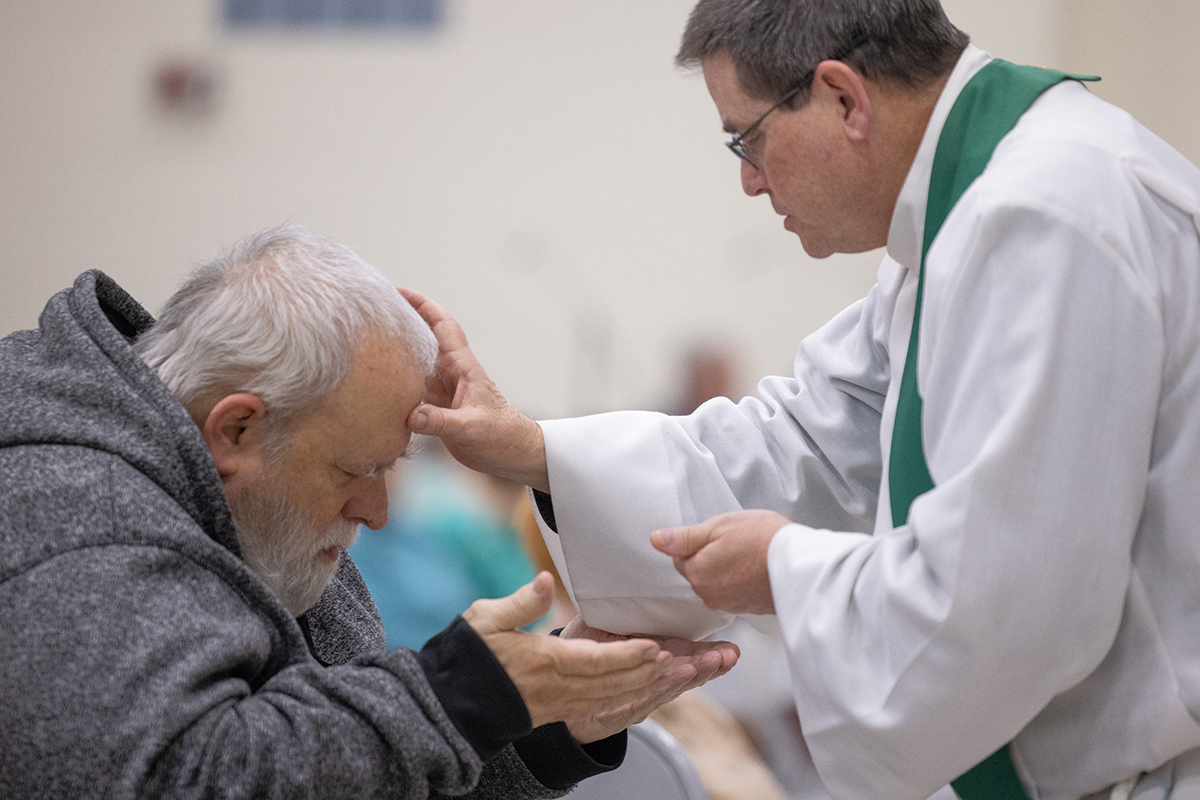As abortions continue to decline in Missouri, resolve to end abortion remains, say those in the pro-life movement
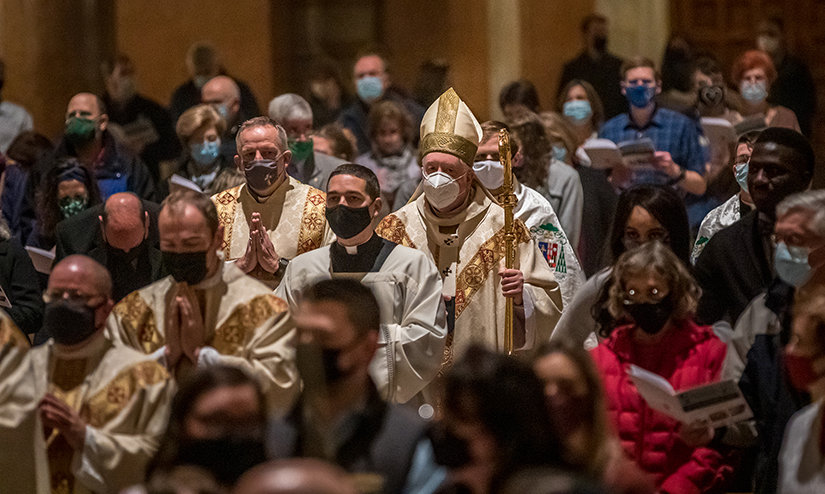
Memorial Mass one of several events marking anniversary of Roe vs. Wade decision
Natalie, Monica and Erin McDonough have traditionally participated in the annual Roe vs. Wade memorial Mass at the Cathedral Basilica of St. Louis. The sisters also have attended the monthly Helpers of God’s Precious Infants Mass, which traditionally includes a Rosary procession to the nearby Planned Parenthood.
This year’s observance of the Jan. 22 Roe vs. Wade anniversary looks different in some ways — with with numerous events going virtual, including the March for Life rally in Washington, D.C. Other traditions — including the memorial Mass at the cathedral basilica — went on as planned.
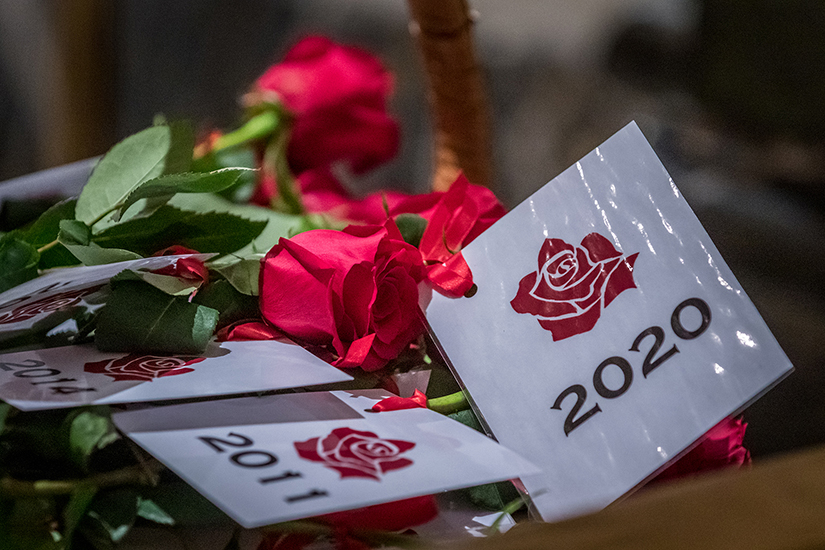
“The pro-life cause has been a huge part of our lives growing up,” said Natalie McDonough, adding that their resolve to see an end to abortion remains.
In 48 years since the 1973 decision, more than 60 million lives have been ended by abortion, Archbishop Mitchell Rozanski noted at the annual memorial Mass Jan. 16. “It is an affront to the great privilege that has been bestowed on our human race by God to be able to procreate human life in our world,” he said. “Each life is indeed precious, created in the image and likeness of God, adding his or her own gifts, talents and abilities to enrich our human race.”
Abortions taking place in the state of Missouri continue on a decline. Missouri was among states with the lowest abortion rates and ratios, according to data released from the Centers for Disease Control late last year. In Missouri in 2018, the abortion rate was 2.5 abortions per 1,000 women ages 15-44 years. Its abortion ratio was 40 abortions per 1,000 live births. Missouri is one of six states that have only one abortion clinic. Provisional information for 2019 from the Missouri Department of Health and Senior Services also showed that Missouri resident abortions decreased 23.9 percent, with 4,660 Missouri residents obtaining abortions, compared to 6,125 in 2018.
Most recently, the Missouri health department reported that 39 surgical abortions took place in Missouri from Jan. 1 through Nov. 15, 2020. There were 1,471 abortions in Missouri in 2019.
The archdiocesan Respect Life Apostolate recently issued a statement responding to reports circulating that Missouri may be the first “abortion-free” or “abortion clinic-free” state. However, the apostolate noted that the last freestanding abortion facility in the state, Reproductive Health Services of Planned Parenthood of the St. Louis Region, is still a legally licensed abortion facility by the state of Missouri, with many Missouri women being referred to the Planned Parenthood clinic in Fairview Heights, Illinois. Abortions also continue to be offered by at least one health care system in the St. Louis area.
“The Respect Life Apostolate encourages the pro-life community to stay focused on — and be encouraged by — the known documented successes instead of perceived ones,” according to the statement. “To reach Missouri women with the help they need to choose life, the RLA encourages the employment of effective existing strategies and the development of new ones based on sound research and results. The Apostolate invites the pro-life community to continue to pray and work together for the day when all unborn children are truly protected by law and welcomed into life.”
The Missouri legislature continues to propose abortion-related measures. Several key measures being considered in this session include:
• “Safeguarding All Children’s Remains to Ensure Dignity Act,” sponsored by Rep. Hannah Kelly, R-Mountain Grove, would require the remains of an aborted child to be buried or cremated. A doctor would be required to give the woman information on her choices for the final disposition of the remains. The bill also prohibits the use of fetal remains from an abortion to be used for any reason except for diagnosing anomalies, paternity or other law enforcement purposes. The bill is HB 431. A companion bill in the Senate in SB 101.
• Another measure to be considered is the “Born-Alive Abortion Survivors Protection Act,” sponsored by Sen. Eric Burlison, R-Springfield. The bill, SB 168, would give a child born alive during or after an abortion or attempted abortion the same rights and privileges as any other person, citizen, and resident of Missouri, including any other live-born child. A similar measure in the House is HB 155.
• State funds would be prohibited from being used for abortions under a bill sponsored by Rep. Nick Schroer, R-O’Fallon. The bill is HB 635. A constitutional amendment has been proposed in the Missouri Senate, SJR 18.
Heavy security in D.C., ongoing pandemic mean March for Life will be virtual
— Catholic News Service
Natalie, Monica and Erin McDonough have traditionally participated in the annual Roe vs. Wade memorial Mass at the Cathedral Basilica of St. Louis. The sisters also have attended the monthly … As abortions continue to decline in Missouri, resolve to end abortion remains, say those in the pro-life movement
Subscribe to Read All St. Louis Review Stories
All readers receive 5 stories to read free per month. After that, readers will need to be logged in.
If you are currently receive the St. Louis Review at your home or office, please send your name and address (and subscriber id if you know it) to subscriptions@stlouisreview.com to get your login information.
If you are not currently a subscriber to the St. Louis Review, please contact subscriptions@stlouisreview.com for information on how to subscribe.

